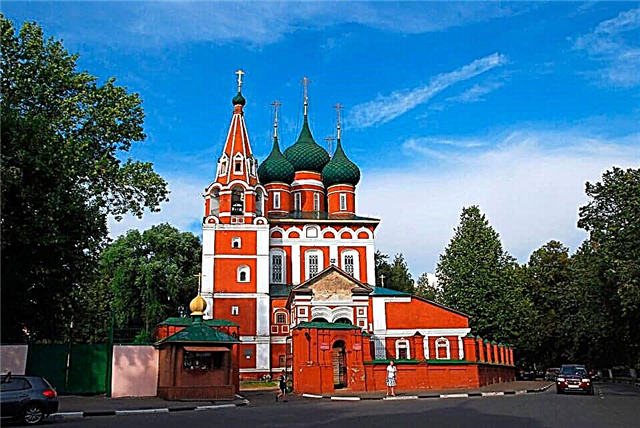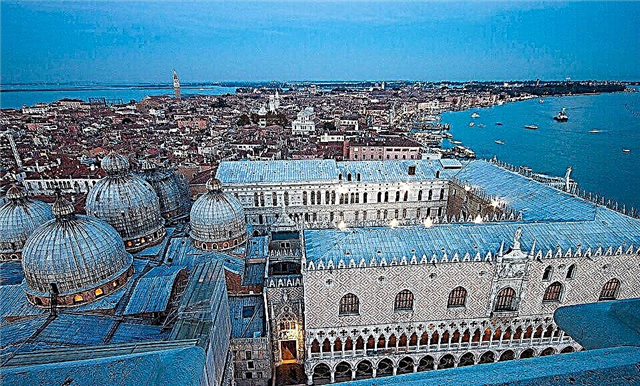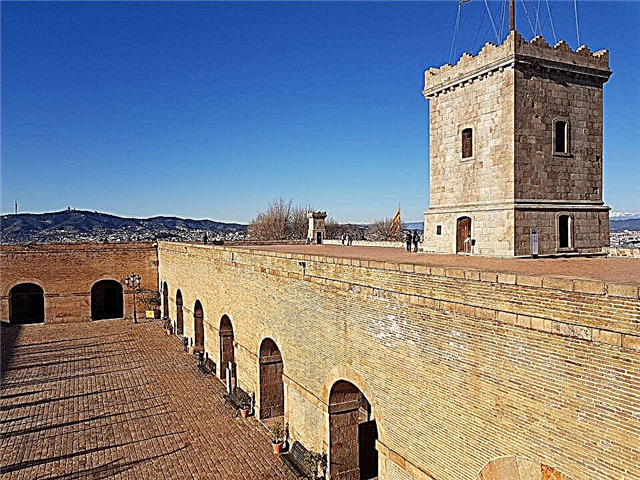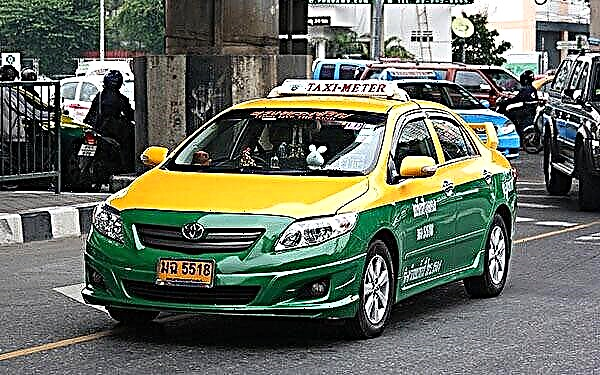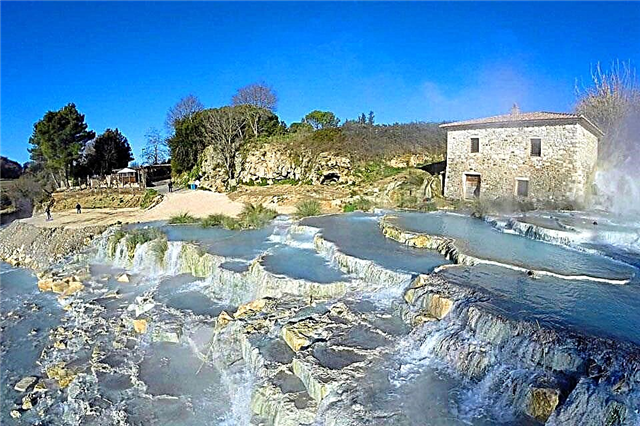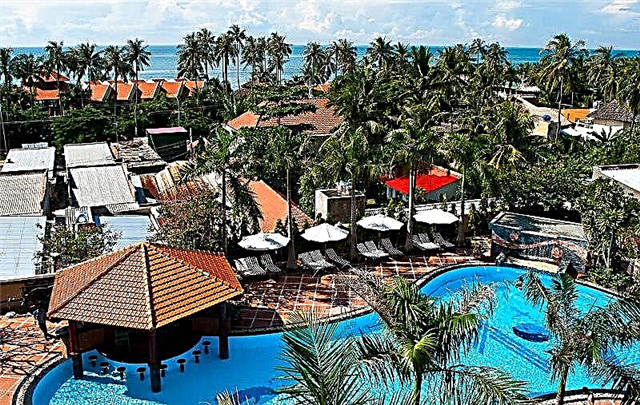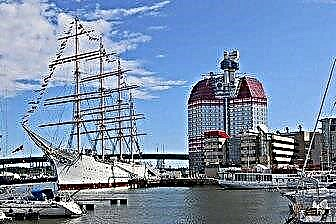Gothenburg is a typical Scandinavian city with a familiar array of attractions. However, each of its buildings keeps some interesting history or stands out from the rest. For example, the fish market, although it still works as usual, is an architectural monument. And the Haga district has turned from once poor and suburban to prosperous, economically and culturally important for Gothenburg.
The local Botanical Garden is one of the best in Europe. Some museum collections are also unmatched. The Swedes also do not forget about entertainment, for which the Liseberg Park was founded. Young tourists and their parents will also like the "Universum" - a scientific center, where everything is explained clearly, allowing them to gain knowledge through experience.

The best hotels and hotels at affordable prices.
from 500 rubles / day
What to see and where to go in Gothenburg?
The most interesting and beautiful places for walking. Photos and a short description.
Haga district
In the past, it was considered a suburb of Gothenburg. Founded by Queen Christina in the 17th century and located outside the city walls. The area gradually developed and became part of the city. It features well-preserved architecture. However, some of the houses had to be demolished and replaced with copies. People with high incomes live here. Tourists are attracted by the walking areas and the atmosphere of the past centuries.

Liseberg amusement park
Built for the 300th anniversary of the city. There were mass events dedicated to this date. One of the largest parks in Scandinavia. It is conventionally divided into several zones. There are walking areas and a picturesque corner where hares run. Tourists, on the other hand, are attracted more by breathtaking rides or concert venues. On weekends and holidays, it is traditionally not crowded here.

Botanical Garden
It was opened in 1923 with money from both the authorities and local residents. It is a gift to the city for its 300th anniversary. One of the best botanical gardens in Europe. Since 2001, it has been under the management of the Västra region. The area is more than 175 hectares, of which 40 are constantly cultivated, and the rest of the territory is protected areas and an arboretum. Sightseeing: rock garden, rhododendron valley, Japanese garden.

Park "Tredgordsvoereningen"
It was created in 1842 by a community of gardeners with the direct participation of King Charles XIV. It is considered one of the most beautiful parks in Europe of its era. The best time to visit is summer, when everything is blooming and fragrant. There is a rose garden where almost 2 thousand types of roses are grown. The palm greenhouse appeared in 1878, which made it possible to work with five different climatic conditions.

Park "Slottskogen"
It was destroyed in the 80s of the XIX century practically in the center of the city. In the past, since the founding of Gothenburg, there was a dense forest here. Among the neat lawns and paths for walking, you can find many interesting things: a zoo, a pond and sports grounds. The Way Out West festival is held annually. Each season brings a unique experience. For example, penguins live in the outdoor pool in winter.

Science Center-Museum "Universum"
It occupies seven floors and is aimed at both toddlers and older people. The pavilions house a mini jungle with real tropical butterflies and a small oceanarium where sharks live. There is a room that allows you to study the principles of the lie detector in practice. In another room, you can test your dexterity and bypass the safety laser beams. Experiments are both teaching and entertaining.

Volvo Museum
Located on the island of Hisingen in the industrial area. The museum is completely dedicated to the history of the company. Volvo is Sweden's premier vehicle manufacturer. The exhibition presents models of different periods, from the earliest ones to prototypes of cars of the future. There are also samples of engines for tanks and aircraft parts - all of which are supplied for the needs of the country's army.

Maritiman Maritime Museum
The largest of the floating shipbuilding museums. The total number of vessels in the collection is 19. The oldest one was launched in 1875. Tourists can climb aboard and look around. There is a guide who will tell you about each ship: the history of its creation, purpose, how it ended up in the museum. Inside one of the ships there is a restaurant, a cafe, and a souvenir shop.

Museum "Aeroseum"
Founded in 1999, when the fund of the same name began to deal with bunkers located near the city airport. The area of two bunkers built in the 50s of the last century is 8 thousand square meters and 22 thousand square meters. They go 30 meters underground. The exhibition tells about aviation, from the first myths about flights to the present day. Although the tours are in Swedish, it is possible to arrange in advance about the presence of an interpreter.

Museum of Art (Göteborgs konstmuseum)
It can be found at Getaplatsen Square. Unlike other museums, this collection was started thanks to donations. The exhibition includes canvases by world renowned masters such as Picasso, Van Gogh, Monet. It also houses one of the largest collections of Scandinavian art. In the 90s, the building was expanded: there were areas for temporary exhibitions, the Hasselblad Center, a shop and a cafe.

Poseidon Fountain Statue
One of the symbols of Gothenburg. The height of the statue is 7 meters. The creator of the fountain, Carl Milles, completed work on it by 1930. Poseidon looks like an athletic youth holding a shell and fish in his hands. The fountain bowl is decorated with additional decorative elements - fantastic creatures and waterfowl. All this creates a dynamic effect and makes the composition livelier.

City Museum (Göteborgs stadsmuseum)
Began to receive guests in 1861. Its goal is to collect all information about the city from ancient times and convey it to visitors. In its current form, it has existed since 1993, when 5 different museums united under the guise. The most notable exhibit is a Viking Age ship - one of a kind. The museum hosts lecturers, seminars and even city tours are held.

Natural History Museum
Founded in 1833. The oldest museum in Gothenburg. The current building was given over to the exhibition 90 years later. It is located in the Slottskogen Park. Some of the premises are occupied by temporary exhibitions and experimental projects. The main exhibits are stuffed animals from different parts of the world. For example, an African elephant shot in Angola, or a young blue whale found on the southern coast of the city.

Gothenburg Opera
It opened in 1994. The construction proceeded quickly, as the funding allowed us to speed up the deadlines. The auditorium can accommodate 1301 people. Stage area - 500 m2. In addition to opera, they stage ballet, operettas, musicals. Externally, the building looks unusual: in its design, the designers wanted to focus on lightness. And inside, nothing changes the classic design style.

Mastuggschurkan Church
Construction began after a competition was won by Siegfried Erikson. Prerequisites: capacity for at least a thousand people, sturdy construction to withstand bad weather, and ease of execution to reduce costs. The grand opening took place in 1914. The building is made of red brick and stands on a gray foundation. There are two massive bells.

Gothenburg Cathedral
Founded in the first half of the 17th century. A wooden church used to stand on this place. The cathedral was badly damaged by fire in 1721 and 1802. The building had to be rebuilt practically from scratch. It owes its current appearance to Karl Wilhelm Karlberg, who did not manage to complete the project before his death.In 1815, the temple was illuminated, but some details, such as the tower, were completed later.

Oscar Fredrik Church
The construction was completed in 1893. It is considered an impeccable example of the neo-gothic architectural style. Despite three restorations, the exterior remains unchanged. On the east side there is a 75-meter high chapel. There are many small details in both the external and internal decoration. After the installation of the organ in 1967, organ music concerts are held within the walls of the church.

Feskekorka Fish Market
Covered fish rows opened on the banks of the canal in 1874. Due to the external resemblance to religious buildings, they got their name, translated as "fish church". Here you can not only buy seafood, but also have a snack at a local restaurant. The roof of the market goes down almost to the ground, and inside there is a lot of free space and no columns. The building was granted the status of an architectural monument in 2013.

Lilla Bommen
Located in the harbor of the same name. The construction was completed in 1989. The premises inside the building are divided into three types: office, retail and for household needs. There is an observation deck on the top floor. Considering the height of the building is 86 meters, a beautiful view of Gothenburg opens up from here. Nearby, the Viking barque, a four-masted ship converted into a hotel, is anchored.

Skansen Kronan Fortress
Built in the 17th century on a hill southwest of the center of Gothenburg. On the walls, the thickness of which reaches 5 meters, at that time there were 23 cannons. They never fired, as there were no attacks on the fortress. Having lost its defensive significance, it was empty for some time. Later, until 2004, it was used by a military museum. Now it can be rented for events.

Elfsborg fortress
Built at the beginning of the XIV century to protect trade routes. The location is an islet on the Geta River. It was regularly shelled, participated in all wars in the region, recovered and again performed its functions. In 1612, after a long siege, the defenders of the fort surrendered to the enemy. Fortified walls remain from the fortress in modern times - one of the most reliable in Europe. But the buildings inside the perimeter have not survived.

Gunnebo Palace
Located in the suburbs of Gothenburg. The estate dates back to the end of the 18th century. The architectural style is neoclassical. The construction was ordered by the merchant John Hall, who made the palace his summer residence. A landscape park is laid out around. Currently, you can get inside with a guided tour, a walk in the park is available to everyone. In addition to the exposition, the building has a restaurant and a souvenir shop. In summer, the theater company gives performances in the garden.

Elvsborg bridge
It connects the banks of the Geta-Elv River. The suspended structure was built in the 60s of the last century. The length is 933 meters, the height above the water is 45 meters. The central part is painted green. This was done in honor of the World Athletics Championships, which took place in the city in 1995. The bridge could have been called "West Bridge" in English for ease of pronunciation, but the Swedish version was left at the request of the public.

Southern Gothenburg Archipelago
Among the group of islands, the most famous is Vrango. A small village located on it has a developed infrastructure. There is everything you need for a tourist holiday, including a hotel and a cafe. Travelers make sure to take walks along the northern beaches and rocky shores to appreciate the beauty of Swedish nature. Stirso Island is also inhabited and can be reached by ferry.

Wing Island and Lighthouse
It takes about an hour and a half to get here from the city. There are many tourists on the island in the summer season. You can go here on your own, or hire a guide. The first lighthouse was built here in 1890. The work of the current - the third in a row - was automated in 1974. A panoramic view opens from its top. Although the practical meaning of the structure has been lost, it is not taken out of action at the request of the public.


